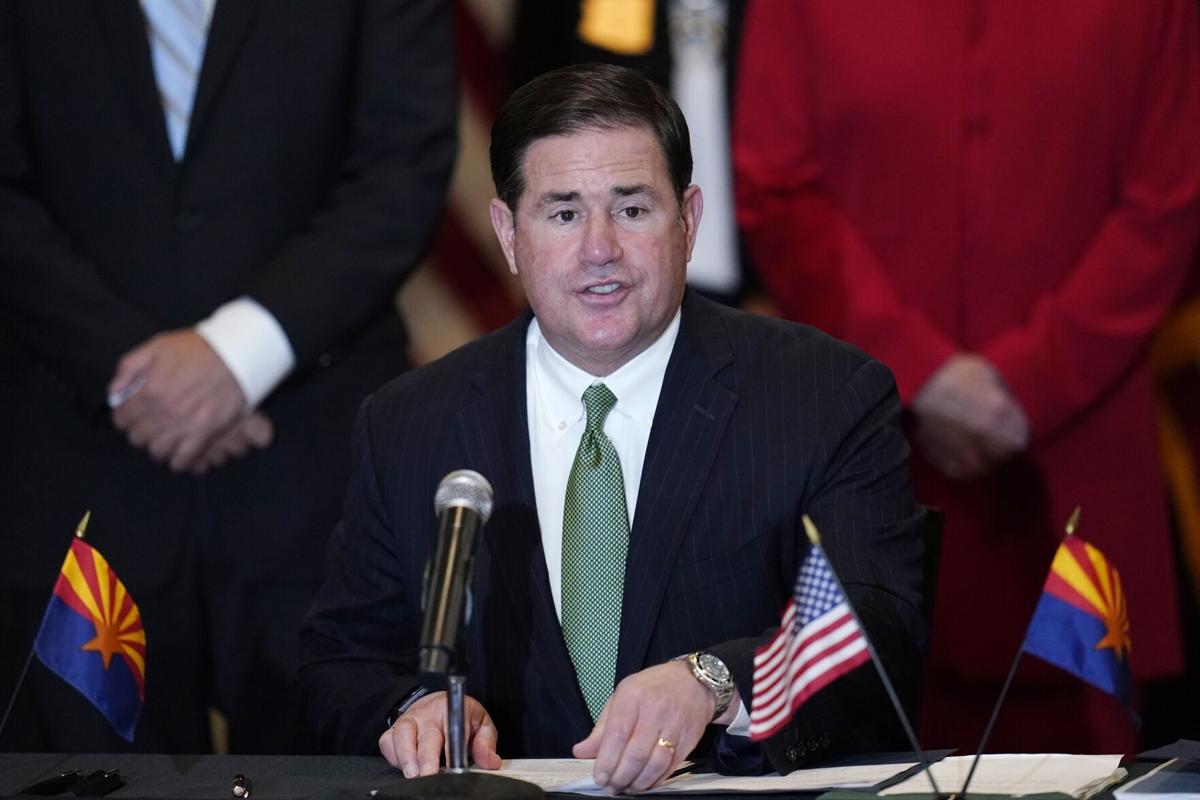Gov. Doug Ducey is telling federal officials that there’s nothing illegal about his using COVID-19 grant dollars in a way that financially penalizes schools that impose mask mandates.
In fact, a top staffer says there’s a good reason to divide up the $163 million only among schools that do not require masks.
“Experts have warned that masks can be harmful to children’s emotional development,” Jason Mistlebauer, a member of the governor’s budget staff wrote Thursday to the Treasury Department, the organization that provided the dollars in the first place. “Seeing faces and reading emotional cues are critical for school-aged children.”
Anyway, he said, studies show there is a low risk of transmission among students.
Mistlebauer said all that allows the state to use the funds to “empower parents and children to make the best decision based on information and recommendations provided by the Centers for Disease Control and other scientific sources,” pointing out the CDC is not requiring masks in public schools.
But it remains to be seen whether those arguments wash with the feds.
Last month, Deputy Treasury Secretary Adewale Adeyemo wrote to Ducey saying that the state was improperly using its $163 million from a COVID-19 relief program. Adeyemo gave the governor until Thursday to say how he intends to “remediate” the issues or face a demand for refund of the cash.
But it’s clear from the letter from Mistlebauer that Ducey has no intention of giving the money back.
He told Jacob Leibenluft, the Treasury Department’s chief recovery officer, that the rules say that states have “broad flexibility” in how to use the cash. Anyway, Mistlebauer said the way Ducey looks at it, Arizona is complying by using the dollars to address disparities in educational attainment and increased educational hardships resulting from the pandemic.
At the heart of Adeyemo’s complaint is that the state is distributing the money only to schools that do not require students and staff to wear face coverings during classroom hours and while on campus. And the governor also is using the cash to give out $7,000 vouchers to parents who want to pull their kids out of schools with mask mandates and instead send them to private and parochial schools without such a requirement.
Adeyemo said all of that runs afoul of the purpose of the grants, which is to “mitigate the fiscal effects stemming from the COVID-19 public health emergency.” And that, he said, includes supporting efforts to actually stop the spread of the virus.
What Ducey has done, the treasury official said, is actually discourage schools from following protocols that are designed to contain the virus. And that, he said, is “not a permissible use” of the federal cash.
Mistlebauer, for his part, said the feds are making too much of it.
“The state wants to ensure that low-income students are not disproportionately affected by mask mandate rules and school closures,” he wrote.
It starts, he said, with the fact that not all families have access to a reliable internet connection. And Mistlebauer said that children living in the poorest 20% of U.S. neighborhoods will experience “the most damaging and long-lasting effects of school closures.”
But Adeyemo, in his letter to Ducey, made no mention of the governor’s decision to divide up the cash only among schools that were open for in-person instruction. Instead, the federal official said the issue is denying a share to those schools that have decided to require that faculty and students wear face coverings.
He said the purpose of the money is to “mitigate the fiscal effects stemming from the COVID-19 public health emergency.” And that, he said, includes supporting efforts to actually stop the spread of the virus.
And Adeyemo said the state cannot impose conditions on receipt of these dollars to acting in ways “that would undermine efforts to stop the spread of COVID-19 or discourage compliance with evidence-based solutions for stopping the spread.”
He also reminded Ducey that the state, prior to receiving nearly $2.1 billion of COVID-19 relief cash, provided a certification that it would use all the dollars it received in compliance with the federal law and any regulations issued by the Department of the Treasury. And those limit use of the dollars to responding to the public health emergency and its negative economic impacts.
All that, Adeyemo said, limits Ducey’s discretion.
It is now up to the Treasury Department to decide whether to pursue the matter and go after the state to recover the funds.
In imposing the conditions on receipt of the funds, Ducey said he was simply saying that only schools that comply with Arizona law should be eligible. That was based on a statute approved earlier this year banning mask mandates.
But that law never took effect, having been struck down in September as illegally enacted, a decision just upheld by the Arizona Supreme Court, leaving the governor with no legal basis for the distinction.





